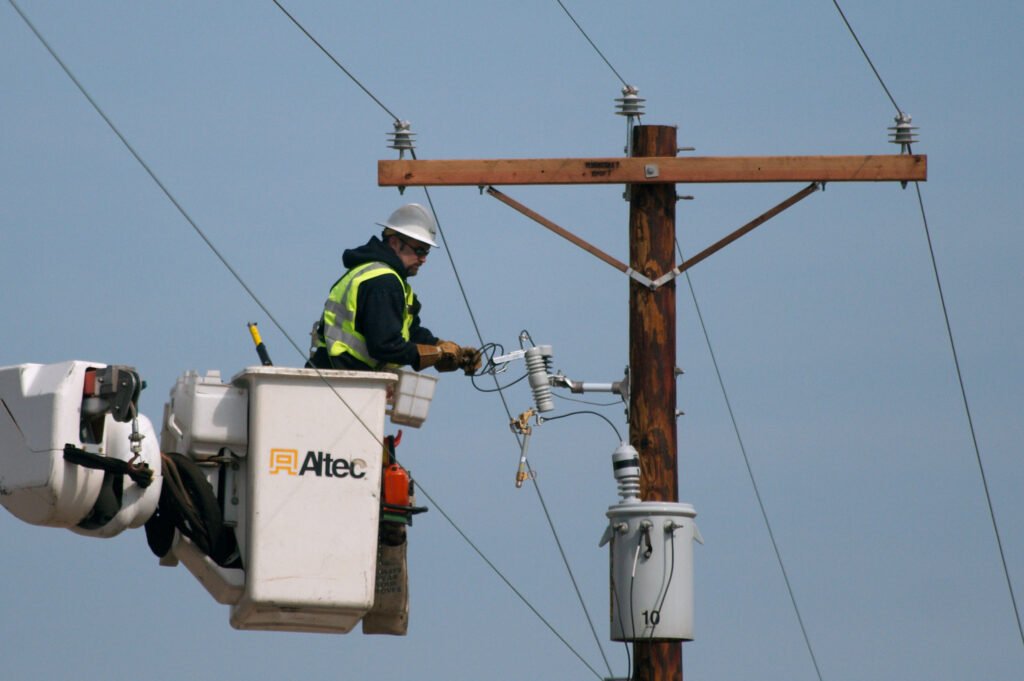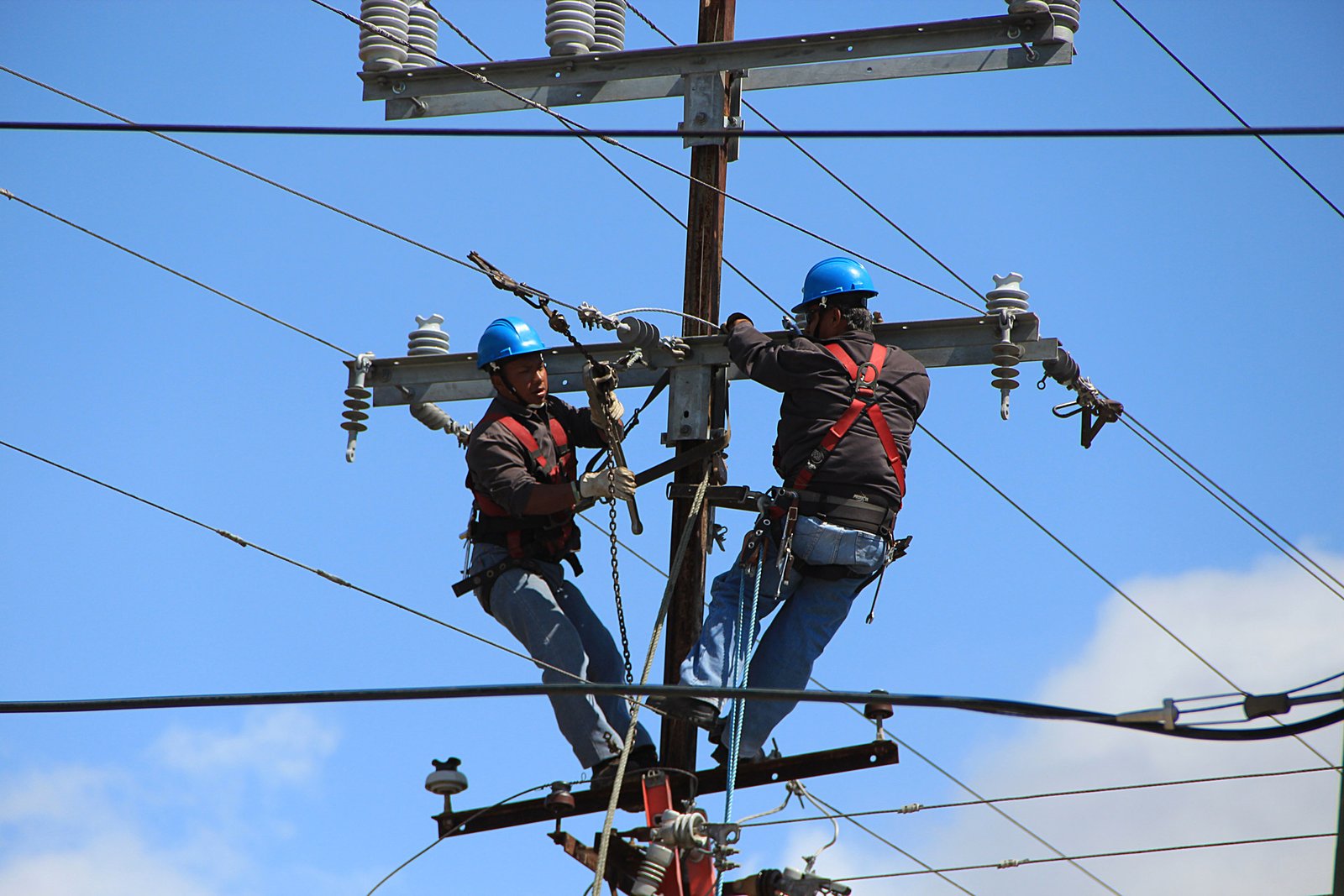In an era where energy is the lifeblood of our daily lives, the electric utilities central sector stands as a pillar of modern society. This industry not only powers our homes, businesses, and communities but also fuels innovation and sustainability efforts worldwide.
As the demand for clean, reliable energy continues to surge, the need for talented professionals in the electric utilities central field is greater than ever. Jobs in this sector span a wide array of disciplines, from technical and engineering roles to strategic positions in management and policy-making.
Quick Guide To Start A Career In Electric Utilities Central
Start a high-paying career in Electric Utilities Central with this quick guide. Learn the essential steps to secure the best jobs in the industry and embark on a rewarding professional journey.
Are you fascinated by the world of electric utilities? Do you want to embark on a rewarding career in this field? Look no further! In this quick guide, we will walk you through the essential information you need to kickstart your journey in the electric utilities central industry.
Let’s dive in!
Education And Training Requirements:
- Obtain a high school diploma or equivalent qualification.
- Pursue a bachelor’s degree in electrical engineering, power systems, or a related field.
- Consider completing internships or co-op programs to gain practical experience.
- Obtain relevant certifications, such as Certified Electric Utility Safety Professional (CEUSP) or Certified Energy Manager (CEM), to boost your credentials.
Essential Skills And Qualities:
- Strong knowledge of electrical systems and principles.
- Proficiency in technical analysis and problem-solving.
- Excellent communication and teamwork skills.
- Ability to interpret electrical schematics and blueprints.
- Understanding of safety regulations and protocols in the electric utilities industry.
Career Paths In Electric Utilities:
- Electrical Engineer: Design, develop, and maintain electrical systems and equipment.
- Power Systems Operator: Monitor and control the flow of electricity in the grid.
- Lineworker: Install, repair, and maintain electrical power lines.
- Power Plant Operator: Operate and maintain power plants, ensuring efficient electricity generation.
- Energy Auditor: Assess and recommend energy-saving measures for both residential and commercial buildings.
- Energy Analyst: Analyze energy data and provide insights to optimize the utilization of resources.
- Field Technician: Perform inspections, repairs, and maintenance on electrical equipment and infrastructure.
Job Opportunities And Salary:
- Electric utilities central offers a wide range of job opportunities with competitive salaries. According to the U.S. Bureau of Labor Statistics, the median annual wage for electrical engineers was $98,530 in 2020, while power plant operators earned a median wage of $85,950.
- With the increasing demand for sustainable energy sources, the industry is expected to experience steady growth, leading to ample job prospects.
Networking And Professional Development:
- Join industry associations and organizations such as the National Rural Electric Cooperative Association (NRECA) and the Institute of Electrical and Electronics Engineers (IEEE).
- Attend conferences, seminars, and workshops to stay updated with emerging trends and technologies.
- Build connections with professionals in the field through networking events and online platforms like LinkedIn.
Starting a career in electric utilities central is a rewarding and promising path for those passionate about electricity and its applications. By acquiring the necessary education, skills, and professional connections, you can position yourself for success in this dynamic industry.
So, don’t hesitate to take the first step towards a bright future in electric utilities central!
Required Skills & Training

Professionals in the best paying jobs in electric utilities central need strong technical skills and specialized training in electrical systems and maintenance. Expertise in safety protocols and industry regulations is essential for succeeding in this high-demand field.
- Proficiency in electrical systems and equipment: Understanding various electrical components and systems used in utilities central operations.
- Analytical skills: Ability to analyze data, troubleshoot issues, and identify solutions efficiently.
- Technical knowledge: Familiarity with power distribution, electrical maintenance, and safety protocols.
- Communication skills: Effective communication with team members, management, and clients to ensure smooth operations.
- Problem-solving ability: A knack for solving complex issues related to electrical systems under pressure.
- Certification and training: Completion of relevant certifications and training programs in electrical engineering or related fields.
- Compliance knowledge: Understanding regulations and standards governing electrical utilities to ensure compliance.
- Adaptability: Being able to adapt to changes in technology and practices within the electric utilities industry.
- Teamwork: Collaborating effectively with coworkers and other professionals to achieve common goals.
- Continuous learning: Staying updated on industry trends, new technologies, and best practices through ongoing education and training.
Pros And Cons Of Working In An Electric Utilities Central Field
Working in electric utilities central field offers lucrative salaries and stable employment opportunities, making it one of the best-paying sectors. However, the job demands can be physically demanding with potential exposure to hazardous environments and irregular work hours. Balancing the perks and challenges is essential for those considering a career in this industry.
Working in electric utilities central offers a range of opportunities and challenges, making it essential to consider the pros and cons before pursuing a career in this dynamic industry.
Pros
- Stable job market: The electric utilities central field offers a stable job market with consistent demand for skilled professionals due to the essential nature of electricity in modern society.
- Competitive salaries: Employees in electric utilities central often enjoy competitive salaries and benefits, offering financial security and potential for career growth.
- Impactful work: Contributing to the reliable supply of electricity can be highly rewarding, knowing that your work directly impacts communities and industries.
- Technological advancement: Working in this field provides exposure to cutting-edge technology and innovation, allowing professionals to stay at the forefront of industry developments and trends.
Cons
- Physical demands: Jobs in electric utilities central may involve physical labor and working in challenging environmental conditions, requiring resilience and adaptability.
- Safety considerations: Working with electricity carries inherent risks, necessitating strict adherence to safety protocols and continuous training to mitigate hazards.
- Regulatory complexity: The industry is heavily regulated, necessitating compliance with various standards and procedures, which can be complex and time-consuming.
- On-call responsibilities: Many roles in electric utilities central entail on-call duties, requiring availability during emergencies and irregular hours.
Considering the favorable aspects and potential challenges of working in electric utilities central can assist individuals in making informed career decisions and preparing for the unique demands of this industry.
See more: Best iOS Apps for Small Business Owners
Entry-level Jobs In Electric Utilities
Finding a footing in the electric utilities’ industry has never been more promising, especially with a myriad of entry-level job opportunities available for aspiring professionals. These entry-level roles provide an excellent starting point to gain hands-on experience and build a strong foundation in the electric utilities sector.
Lineworker Assistant Positions:
- Assisting in the installation and repair of electrical power systems: This involves supporting experienced lineworkers in setting up and maintaining electrical power lines and equipment.
- Conducting safety inspections and routine maintenance: Lineworker assistants play a crucial role in ensuring the safety and reliability of electrical utilities by participating in regular inspections and maintenance tasks.
Meter Reader:
- Recording and reporting energy usage data: This role involves reading meters at various locations and accurately recording consumption data for billing and operational purposes.
- Responding to customer inquiries and service requests: Meter readers often interact with customers, addressing their queries and facilitating service-related requests.
Apprentice Electrician:
- Assisting in electrical installations and repairs: Apprentices gain hands-on experience under the guidance of experienced electricians, learning the intricacies of electrical systems and components.
- Understanding electrical codes and safety procedures: This role offers a comprehensive learning experience in adhering to industry regulations and maintaining a safe working environment.
Power Plant Operator Trainee:
- Learning operational procedures for power generation equipment: Trainees are exposed to the fundamental operations of power plants, including monitoring equipment, controlling processes, and ensuring optimal performance.
- Conducting routine inspections and equipment checks: This position involves learning the critical tasks of inspecting and maintaining power generation equipment to uphold operational efficiency and reliability.
Embarking on a career in electric utilities through these entry-level roles not only provides valuable practical experience but also sets the stage for continuous growth within the dynamic and rewarding industry.
Best Paying Jobs In Electric Utilities Central
Discover the top-paying positions available in the central electric utilities sector. Uncover lucrative job opportunities that offer competitive salaries and promising career prospects.
- Electrical Engineer: Responsible for designing, developing, and testing electrical equipment and systems within the utility sector. Offers competitive salaries due to specialized skills and demand in the industry.
- Power Plant Manager: Oversees the operation and maintenance of power plants to ensure efficient electricity generation. High-paying role that requires extensive technical expertise and managerial skills.
- Transmission Line Worker: Works on the construction, maintenance, and repair of high-voltage transmission lines. This job commands high pay due to the risk involved and specialized knowledge required.
- Substation Operator: Manages the equipment and operations of substations to regulate electrical flow and voltage. This position is well-compensated for its critical role in maintaining power distribution.
- Electrical Systems Designer: Designs complex electrical systems for utility projects, ensuring compliance with safety regulations. This role demands a high level of technical proficiency, warranting a lucrative salary.
Conclusion
Working in electric utilities central not only provides job security and competitive salaries but also places you at the heart of the transition towards more sustainable and efficient energy solutions. As the demand for renewable energy sources and smart grid technologies grows, so does the need for innovative and skilled professionals to lead the charge.
